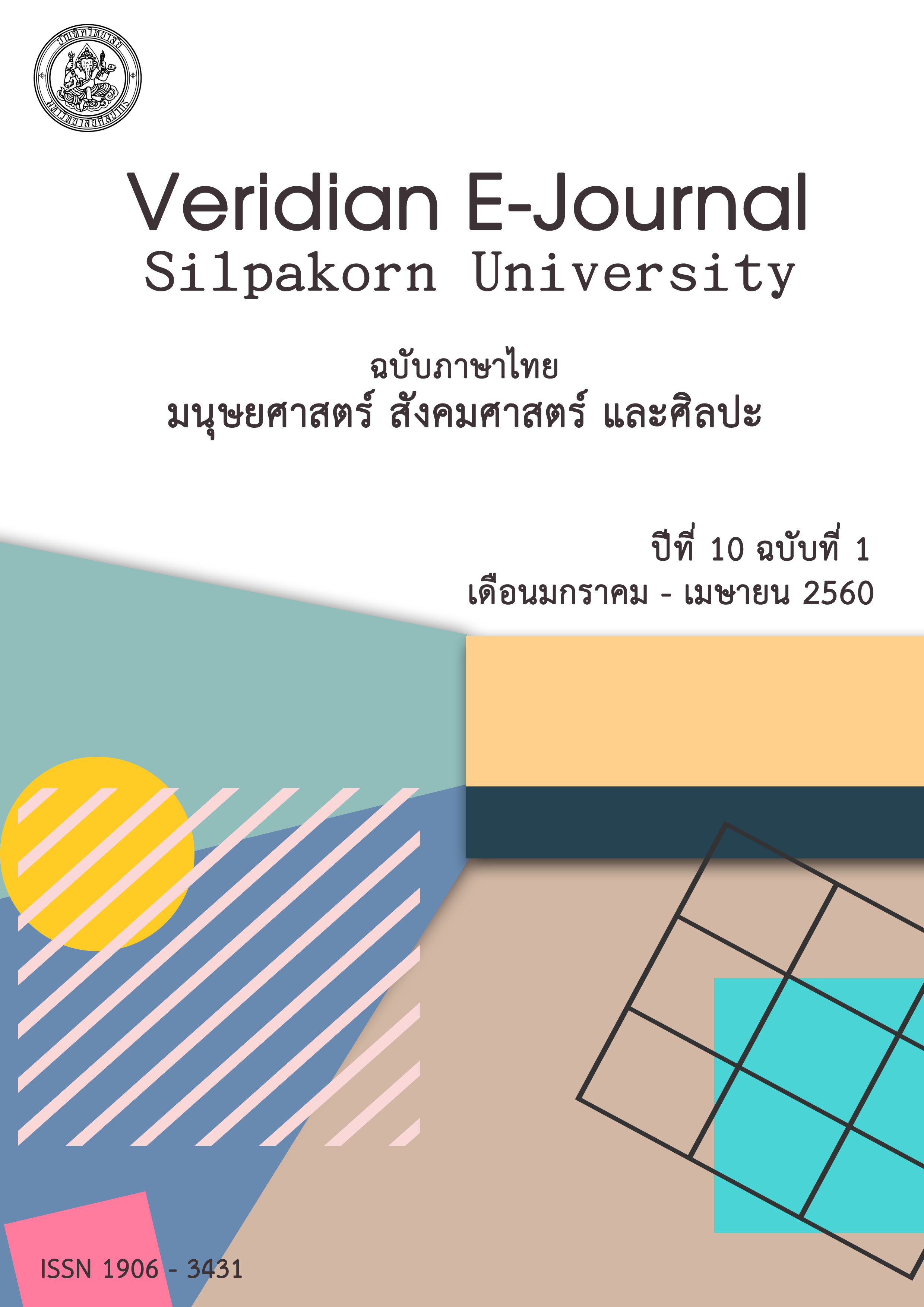กฎหมายโบราณอีสานในสยาม : การปกครองท้องถิ่นสาเกตุนคร พ.ศ. 2397 – 2414
Main Article Content
Abstract
การศึกษากฎหมายโบราณอีสาน ในระหว่างปีพุทธศักราช 2397 -2414 มีจุดมุ่งหมายเพื่อศึกษาถึงบริบทของการปกครองท้องถิ่นในพื้นที่อาณาจักรสาเกตุนครแต่เดิม ซึ่งบทความนี้ได้กำหนดวัตถุประสงค์เพื่อมุ่งศึกษาถึง 1) รูปแบบการปกครองท้องถิ่น และ 2) ศึกษาถึงวิธีการปกครองท้องถิ่นอีสาน ทั้งนี้ ผู้วิจัยอาศัยวิธีการศึกษาเชิงเอกสารเป็นหลัก ขณะที่ผลการศึกษาพบว่าการปกครองสังคมอีสานในอดีตมักจะอ้างอิงในหลักของพระพุทธศาสนาเป็นหลัก กฎหมายมักจะมีการบัญญัติให้บุคคลในสังคมเคารพต่อพระพุทธศาสนาอย่างสูงสุด ซึ่งนับว่าเป็นวิธีการปกครองท้องถิ่นในขณะนั้น กฎหมายโบราณมีน้อยมาตราและจัดเรียงไว้ไม่เป็นหมวดหมู่ แต่เป็นภาพสะท้อนให้เห็นว่า สังคมในสมัยก่อนมีวิถีชีวิตที่เรียบง่าย สังคมไม่สลับซับซ้อนมากนัก เนื้อหากฎหมายจึงบัญญัติเฉพาะเท่าที่จะเป็น อาทิเช่น ประเด็นการทะนุบำรุงพระพุทธศาสนา การเคารพชนชั้นผู้ปกครอง ประเด็นชู้สาว ประเด็นสัตว์เหยียบย่ำพืชผล การทะเลาะวิวาท การลักขโมย และเรื่องหนี้ ซึ่งทั้งหมดมักจะอิงตามหลักของศีลห้า สังคมอีสานในยุคโบราณนอกจากจะมีกฎหมายเป็นสิ่งควบคุมทางสังคมแล้ว ชาวอีสานยังได้ยึดเอาฮีตสิบสองคลองสิบสี่เป็นหลักในการอยู่ร่วมกันในสังคม ซึ่งฮีตสิบสองหมายถึงจารีตประเพณีที่ประชาชนต้องร่วมกิจกรรมทำบุญในแต่ละเดือนตลอดทั้งปี และคองสิบสี่ คือ แนวทางสำหรับผู้ปกครองบ้านเมืองและประชาชนทั่วไปพึงปฏิบัติ14 ประการ ทั้งสองประการนี้เป็นรูปแบบและวิธีการการปกครองท้องถิ่นในสังคมสมัยนั้น
The study of E-san Customary Laws between 1854-1871 aims to consider the context of local government in ancient SaketNakorn. This paper objective tries to interpret 1) the local government form and 2) local government method under these laws. Documentary research is mainly used in this paper. The author argues that the ancient E-san government deeply related to Buddhism and these laws regulated that all people had to respect for Buddhism for being easy to govern. Even though these ancient laws contained only few chapters and were not orderly grouped, but they reflected simple ways of life and less complicated of the old time Thai society. The contents of law contained only the essential agenda such as nourished of Buddhism, the worshiping upon elite class, adultery, animals destroy the crops, brawl, stealing, and debt. All these agenda were based on the five precepts. In ancient E-sarn, the practice of “Heed Sip-Song Klong Sip-See” was also employed for social control along with the law. E-san people also based their social collective practice under the principle of “Heed Sip-Song Klong Sip-See.” Heed Sip-Song refers to mores where the people participated in merit making collectively in each month for a whole year. Klong Sip-See refers to fourteen guidelines for the govern party and citizen to hold as a model and approaches for local administration practices in the society during that period of time.
